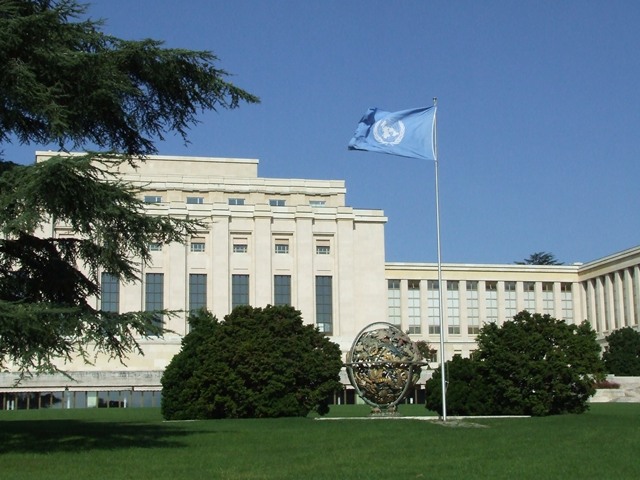
Iraq, Kazakhstan Unite for UN Water Convention Plan
Iraq and Kazakhstan have launched a twinning initiative under the framework of the Convention on the Protection and Use of Transboundary Watercourses and International Lakes (Water Convention), during a dedicated ceremony at the opening of the 5th Baghdad International Water Conference.
The twinning, supported by the International Water Assessment Centre (IWAC), the Water Convention’s collaborative centre hosted by Kazakhstan and made possible through financial support from the Federal Foreign Office of Germany, seeks to strengthen bilateral cooperation through peer learning and institutional exchange in the field of integrated water resources management (IWRM).
Water plays a vital role in both Iraq and Kazakhstan, underpinning their agricultural productivity, energy generation, and the well-being of their populations. Despite their distinct contexts, the two countries face strikingly similar challenges in managing water resources. Both grapple with increasing water scarcity, exacerbated by the impacts of climate change, pollution, outdated infrastructure, and growing demand across sectors. Transboundary water management adds a further layer of complexity, as both countries depend heavily on rivers shared with neighbouring states.
As other twinnings established under the Water Convention, such as between Finland and Namibia and between Ghana, Hungary and Zambia, the twinning of Iraq and Kazakhstan represents an effective model of peer exchange between countries facing comparable water challenges, while being at different stages in their journey under the Convention.
For Iraq, which joined the Convention in 2023, this cooperation offers a valuable opportunity to benefit from Kazakhstan’s long-standing experience in implementing the Convention and addressing transboundary water issues in Central Asia. Through this partnership, Iraq will draw on practical lessons in legal and institutional reform, basin-level cooperation, and adaptation to climate change, while Kazakhstan will strengthen its role as leader in transboundary water governance.
As the first country in the Middle East to join the Water Convention, Iraq – which has a population of some 46.5 million people, expected to almost double in the next 30 years – aims to leverage the Convention also to strengthen its national water governance. The twinning will support Iraq’s efforts in the establishment and work of the National Water Dialogue on Integrated Water Resources Management. The dialogue aims to coordinate action of key national stakeholders from government, civil society and academia, ensuring that policies and strategies in water-dependent sectors take into account the interlinkages with water, and to foster policy reforms in the water sector.
Beyond Iraq, the twinning also serves as a regional demonstration of the Convention’s concrete added value. It shows how countries can benefit from the Convention’s platform and mechanisms for sharing experiences, strengthening capacity, and building trust across borders- elements that are particularly relevant in a region where water cooperation remains limited but increasingly urgent.
The launching ceremony brought together the Director General of Strategic Planning and Follow up of the Ministry of Water Resources of Iraq, Dr. Hatem, and Daniyar Sagadiyev from the Ministry of Water Resources and Irrigation of Kazakhstan. The ceremony highlighted the shared commitment of both countries to deepen their collaboration on water governance and climate resilience under the Water Convention.
“This initiative reflects our determination to translate the Water Convention into concrete action,” said the Director General of Iraq’s Ministry of Water Resources, Dr Hatem. “By working with Kazakhstan, we hope to strengthen national and regional water governance and improve resilience to growing water-related challenges.”
Mr Sagadiyev of Kazakhstan’s Ministry of Water Resources and Irrigation expressed commitment to the twinning, stating: “Kazakhstan is resolved to supporting transboundary water cooperation. Through this twinning, we are pleased to share experiences and reinforce our countries’ mutual efforts to implement the Water Convention and integrated water resources management.”
Since its establishment in Kazakhstan in 2017, IWAC has provided technical expertise and capacity-building support to Central Asian countries in managing transboundary water resources in accordance with the Water Convention. With IWAC facilitation, the twinning will also rely on the centre’s extensive expertise.
Since its entry into force in 1996, the Water Convention has provided an important framework for improving the management of both surface and transboundary waters. Under the auspices of the United Nations, it provides a strong international legal framework and an elaborate institutional platform for Parties to discuss transboundary water cooperation and share knowledge and experiences in many related areas to the management and protection of water. Open to accession by all UN Member States since 2016, the Convention currently counts 55 Parties and has welcomed Iraq in 2023 – being the first Middle Eastern Party to the Convention. At present, more than 20 countries around the world are in various stages of the accession processes, predominantly from across Africa and Latin America.
https://unece.org/media/press/402569


